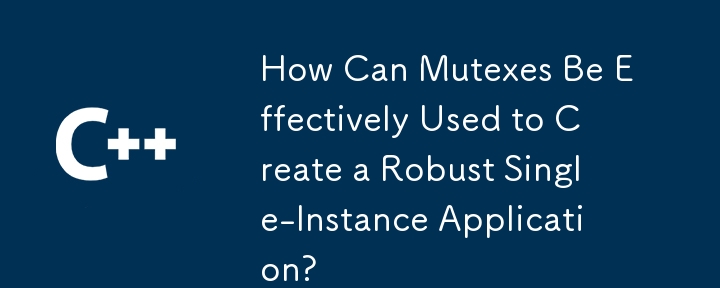

Building Robust Single-Instance Applications with Mutexes
Many applications require preventing multiple instances from running concurrently. Mutexes provide a reliable mechanism for achieving this.
Analyzing a Mutex Implementation:
Consider this attempt at a mutex-based single-instance application:
<code class="language-csharp">static void Main(string[] args)
{
Mutex _mut = null;
try
{
_mut = Mutex.OpenExisting(AppDomain.CurrentDomain.FriendlyName);
}
catch
{
//handler to be written
}
if (_mut == null)
{
_mut = new Mutex(false, AppDomain.CurrentDomain.FriendlyName);
}
else
{
_mut.Close();
MessageBox.Show("Instance already running");
}
}</code>Improvements and Refinements:
This code has several weaknesses:
catch block lacks specific error handling, hindering debugging.A More Effective Approach:
A superior solution using mutexes is:
<code class="language-csharp">bool createdNew;
Mutex m = new Mutex(true, "myApp", out createdNew);
if (!createdNew)
{
// myApp is already running...
MessageBox.Show("myApp is already running!", "Multiple Instances");
return;
}</code>Key Advantages of the Improved Solution:
Mutex constructor handles potential errors.Conclusion:
While the initial code attempts to implement single-instance functionality using mutexes, the refined approach offers significant improvements. By incorporating better error handling and user feedback, developers can create more robust and user-friendly single-instance applications.
The above is the detailed content of How Can Mutexes Be Effectively Used to Create a Robust Single-Instance Application?. For more information, please follow other related articles on the PHP Chinese website!




